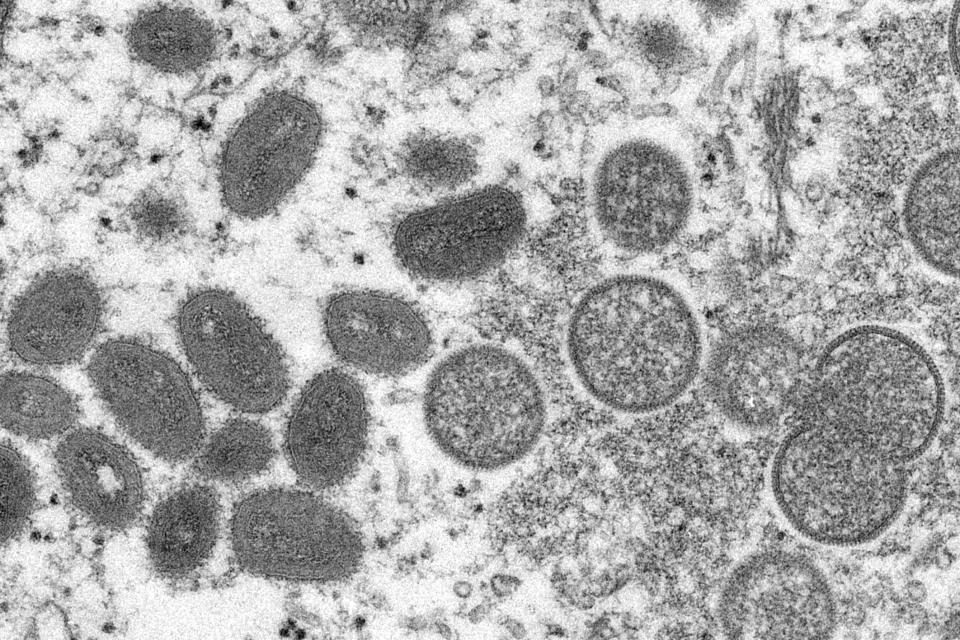Monkeypox is now in 7 states. US health officials urge awareness, not fear.
Nine cases of monkeypox in seven states have been reported or confirmed in the U.S. as of Thursday, and the public health system is ramping up to test, treat and possibly vaccinate those at high risk, health officials said.
"A monkeypox outbreak of this scale and scope across the world has not been seen before," Dr. Raj Panjabi, who leads the White House pandemic preparedness office, said in a news briefing Thursday.
The White House, together with the Centers for Disease Control and Prevention, is working to ensure that tests, vaccines and treatments are easily available to all who need them, he said.
Cases have been found in California, Florida, Massachusetts, New York, Utah, Virginia and Washington.
Scientists have recorded more than 350 confirmed or suspected monkeypox cases since May 5, mainly in Europe but also in the United States, Canada and Australia. They are trying to determine whether the cases might be connected and how.
For decades, monkeypox has been seen in parts of Central and West Africa and believed to have jumped occasionally from animals, probably rodents, to people. Typically, several travelers a year arrive in the U.S. and Europe infected with the virus, but such a large chain of person-to-person transmission has never been seen before.
To combat the outbreak, the U.S. government is mobilizing tests, treatments and vaccines, and President Joe Biden is receiving regular updates. Up to 7,000 tests a week are available, and there are two antiviral drugs that can be given to the infected.
The antivirals are rarely needed, said Dr. Jennifer McQuiston, deputy director of CDC's division of high consequence pathogens and pathology.
"Most of the cases that have come to our attention have been mild and self-limited. In a case like that, an antiviral would not necessarily be something that was automatically recommended or administered," she said.
Vaccination is an option for health care workers at high risk for contracting the virus as they care for those infected.
Overall, the government has multiple programs in place to help track and fight the outbreak, said CDC Director Dr. Rochelle Walensky.
"Monkeypox is not a new or an unknown disease. CDC has been preparing for monkeypox for decades," she said. "We have the resources we need right now to respond, and we know how to respond in this outbreak."
The majority of cases have been among gay and bisexual men, but the risk of exposure is not limited to any one particular group. Walensky said the public must approach the outbreak without stigma and without discrimination.
"While some groups may have a greater chance of exposure right now, infectious diseases do not care about state or international borders. They are not contained within social networks," she said.
Because of the devastation caused by the AIDS epidemic, the gay community has robust health and information networks in place, she noted.
"This is a community that has the strength and has demonstrated the ability to address challenges to their health by focusing on compassion and science," Walensky said.
Panjabi urged anyone with symptoms to contact their health care provider. He expects more cases will be found – and said such discoveries are good news.
"It's a sign that Americans are remaining vigilant and health care providers and public health workers are doing their job," he said.
Early symptoms of monkeypox can include fever, muscle aches, chills and fatigue. In more severe cases, a rash can develop, often on the face and genitals.
Painful and itchy lesions can form across the body, before eventually becoming scabs and falling off. The infected begin experiencing symptoms seven to 14 days after exposure and can remain infectious for several weeks.
Some but not all of those infected had traveled internationally. The CDC, together with local health officials, are doing contract tracing to determine how the virus is being passed.
Monkeypox comes from infection with the monkeypox virus, a viral illness in the same family as smallpox. It has been identified in 16 countries across the globe, including the United States.
The CDC issued a Level 2 travel health notice Friday. On Tuesday the agency warned travelers to "practice enhanced precautions" as monkeypox spreads.
The outbreak in Europe and the United States may be linked to an outbreak in Nigeria that has been ongoing since 2017. An article published in the medical news site STAT on Thursday noted that country experienced an "unusual and long-running" outbreak that began in 2017 and included 241 confirmed cases but has gotten little attention internationally.
There is also an outbreak in the Democratic Republic of Congo that has infected 1,238 people this year and killed 57, according to the World Health Organization. The high death rate there is believed to be primarily the result of a lack of access to health care.
The mode of transmission in the Nigerian outbreak was not been determined. It's also not known if the current outbreak is connected to it, but U.S. health officials are investigating the possibility.
"Time will tell," McQuiston. "We're working as hard as we can to get the sequence data and also to help provide Nigeria the support that they might need and look for to understand what's happening with circulation in the country."

This article originally appeared on USA TODAY: Monkeypox is spreading in the US. Officials urge awareness not fear.

